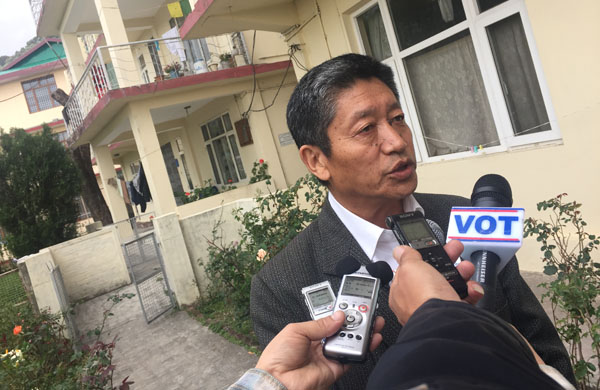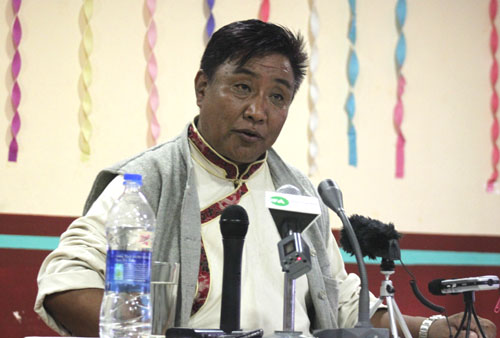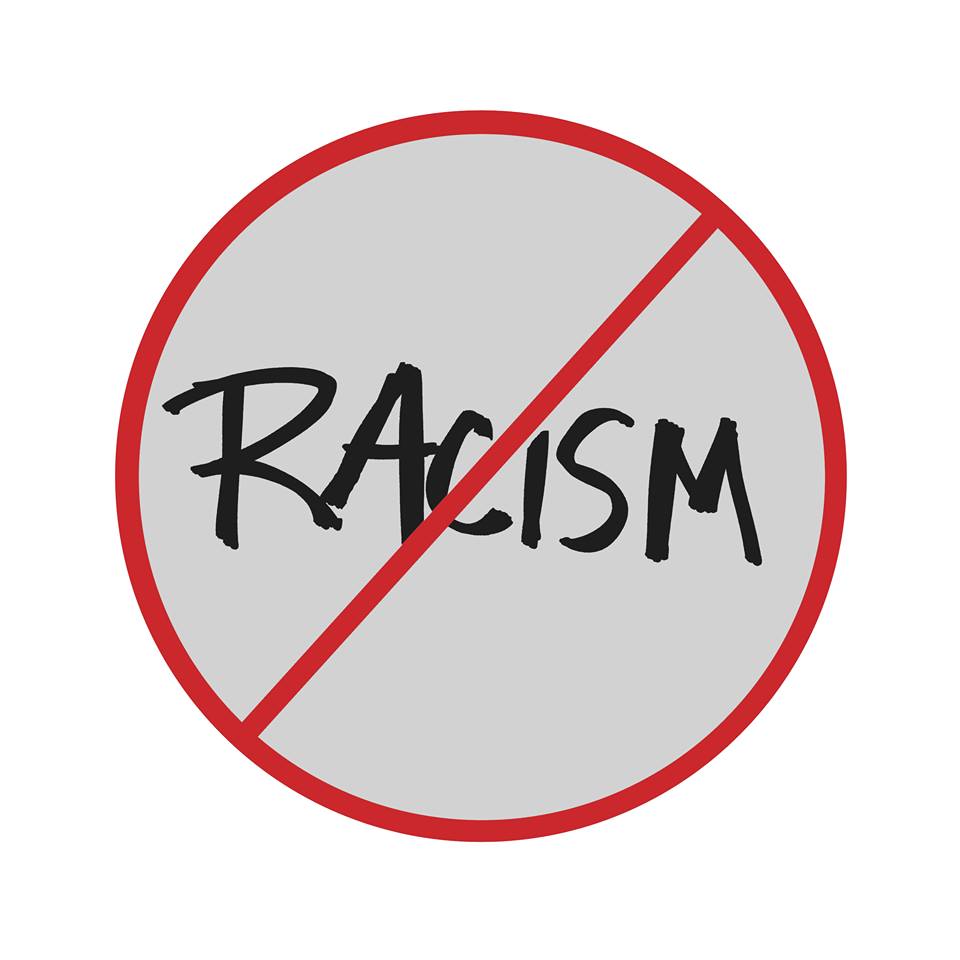RETIRING THE GODS: TIBETAN DEMOCRACY IN EXILE AND ALTERNATIVE MODERNITIES
By BEN JOFFE
Tibetan social media and exile society have been alive of late with commentary about the recent pronouncements and actions made by some of the Tibetan state oracles here in India. The state oracles, who are known in Tibetan as ཆོས་སྐྱོང ༼chökyong༽ or བསྟན་སྲུང་ ༼tensoong༽, i.e. ‘dharma-protectors’, are powerful and ferocious spirits – supernatural bouncers or ‘fixers’ – who are oath-bound to serve the Dalai Lama, the Tibetan government and the Tibetan people by providing prophetic advice on religious issues and affairs of state. The various སྐུ་རྟེན་ ༼kuten༽, the ‘body-supports’ or monastic and non-monastic human mediums that have been chosen by the protectors as their mouthpieces, regularly enter into exhausting amnesiac trances during which the gods come down briefly through possession to fulfill their promises. In exchange for this service, mediums hold honorary government positions.
Following the conclusion of the recent democratic elections for the new Prime Minister or Sikyong, the highest elected political official in the current Tibetan exile administration, the winner, re-elected official Lobsang Sangye and his opponent in the final leg of the elections Penpa Tsering went to receive blessings and prophecies from the oracles. In what subsequently turned into a widely shared and commented on film clip, the Tsering Chenga mountain goddesses took hold of their female medium and proceeded to rain blows and hiss criticisms upon the bowed heads of the two men. The force of this spiritual scolding was further heightened by the simultaneous circulation of the interpreted prophecy of the primary state oracle Nechung, who berated Tibetan politicians and citizens in exile for recent petty and divisive behavior. The protector stressed that unity was the only option and that all Tibetans should give their full support to the Middle Way approach, the special brand of genuine autonomy non-violent compromise with China that the Dalai Lama devised decades ago as a way forward in Tibet-China dialogues. The Tibetan exile administration continues to advocate for this approach, despite it having had little traction and having generated pretty much zero fruit with China. Supporting Middle Way is widely perceived as synonymous with supporting the Dalai Lama. Despite the Dalai Lama’s vocal support for political diversity as a part of robust democracy, those who advocate for the earlier position of the Dalai Lama and exile government, namely that of Rangzen or of full independence from China are frequently villianized, and branded as dangerous, seditious or worse. This last election cycle was the first time in recent years that a candidate ran on a Rangzen platform, and the election period saw a whole range of vicious and polarized reactions.
The fact that the gods could be so blatantly politically partisan was for some already longtime Tibetan critics of the institution of oracles maybe not so much of a surprise. Still, recent events have triggered a wave of responses and re-articulations of longstanding debates about the state of Tibetan secularism, democracy and ‘modernity’ in exile, as well as the role of religion and spiritual forces in Tibetan society and politics more generally. While some Tibetans railed against the shameful perpetuation of base and easily exploitable superstition and irrationality in Tibetan society, others expressed sadness and concern that their countrymen had so readily turned their backs on their spiritual heritage and allies, that Tibetans were as quick as Chinese colonizers to demonize and dismiss their own religious practices.
There’s been loads of really thoughtful and funny commentary and satire recently on all this (esteemed Tibetan blogger and critic Jamyang Norbu was also moved to recirculate an old essay series of his from over a decade and a half ago. The piece offers a uniquely wide-ranging and scathing critique of what Jamnor identifies as Tibetan irrationality and retrogressive superstition – yet ends on an interestingly nuanced notehttp://www.rangzen.net/2003/01/04/back-to-the-future/). The following excerpt from one Tibetan’s op-ed online (called, ‘The Gods are Angry’http://bangchen.net/ལྷ་བ་ཁྲོས་འདུག/) sums up a lot of recent commentary quite nicely. In their opening paragraphs this commentator points out that protectors and oracular procedures predate the advent of Buddhism in Tibet. The writer then goes on to note that everyone should be free to practice or believe in religion as they see fit, but identifies three reasons why the institution of government oracle consultation should cease:
“Whether or not individual people or families place their faith in deities, diviners, astrologers and the like, whether or not they practice religious rituals is up to them. But I maintain that making use of these things in the realm of contemporary politics isn’t appropriate. There are three reasons for this: 1) Once politicians entrust all of their ultimate responsibilities which they ought to be taking charge of themselves to immaterial dharma-protectors then the people are left with nothing to hold onto 2) Tibetan exile society has committed itself to implementing democracy; since everyone (considers) His Holiness the Dalai Lama a great leader, and people are reciting manis (i.e. In reverence for him, are singing his praises), if we’re still investing politically in deities, diviners and astrologers and so on today in the twenty-first century, the perception of the world will be that Tibetans really are endlessly stupid or ignorant. 3) Given that the Dalai Lama has already devolved political authority, the time has come for Nechung, Gadong, and the Goddesses and so on to hand over their status as government officials and return to society.”
Just today, the desung kalon or Tibetan exile security minister tendered his resignation, stating that recent ‘heavy’ or severe public admonitions from both the Dalai Lama and the protectors had made a great impression on him, had made him feel burdened in his mind, and that he could no longer ethically fulfill his responsibilities. I have no idea if the minister is someone who has always taken the words of the protectors so much to heart, or if this resignation might also correlate with other recent changes in government. Just a few weeks ago another minister resigned as well – rather than citing the ire of deities she mentioned instead her discomfort with the current prime minister.
There are a lot of different strands and developments here. The Nechung oracle’s recent proclamation, just like the resignations, feels more pointed, but such events are not exactly unprecedented either. When was the last time, if ever, that more than one exile minister resigned in quick succession though, I wonder?
Particular events and histories overlap but also potentially veer in different directions here. What’s clear though is that these sorts of debates and uncertainties tie into broader questions about Tibetan modernity. Over the years, the Dalai Lama has promoted the development of secular democracy in Tibetan exile, has advocated for the separation of church and state. As the above commentator notes, the religious leader took the monumental step some years ago to devolve formal political authority. And yet at the same time the Dalai Lama is no textbook or hardline Buddhist modernist or secular Buddhist. His vision of modernity appears to still leave significant room for key features of Buddhist esotericism like reincarnation, spirits, and clairvoyance. Is there such a thing as ‘tantric modernity’ then? What exactly would or should it look like? Should we even be talking about ‘alternative’ modernities at all?
Whether or not the protectors end up resigning or retiring, Tibetans and their interlocutors (human or otherwise) will continue to debate the question of Tibetan modernity and/or modernities as a vital part of imagining both diasporic and re-in-stated futures (see a well-timed opening up of the conversation here from my colleague Dawa : http://lhakardiaries.com/…/tibet-and-modernity-with-sperli…/). The Desung minister’s resignation today shows, at the very least, that ‘immaterial’ protectors can influence very material personal decisions. It remains to be seen exactly how conversations about these topics will unfold, the extent to which they will be ‘democratic’ or will engage different demographics simultaneously. Whatever the case though, it seems like they will inevitably be linked to some pretty weighty issues of overarching significance for Tibetans.
Ben Joffe is a Cultural Anthropology PhD candidate from South Africa based at the University of Colorado, Boulder. He is currently conducting Wenner-Gren funded dissertation fieldwork with Tibetan refugees in India and is affiliated with the Library of Tibetan Works and Archives as a researcher. His dissertation research is focused on ngakpa life-histories, lineages and institutions in exile and how these are operating outside of Tibet .
He is interested in the ways in which the esoteric knowledge and charisma of these Tibetan Buddhist non-celibate tantric ritual specialists are being mediated, circulated, appropriated and contested in light of the increasing globalization of Tibetan Buddhism, and drives to make legible a Tibetan nation, and to both preserve and reform Tibetan culture in exile.
You can read more about him and his research at his academia.edu page here:
https://colorado.academia.edu/BenPJoffe
Views expressed in this article are personal and should not be attributed to Tibet Express.



